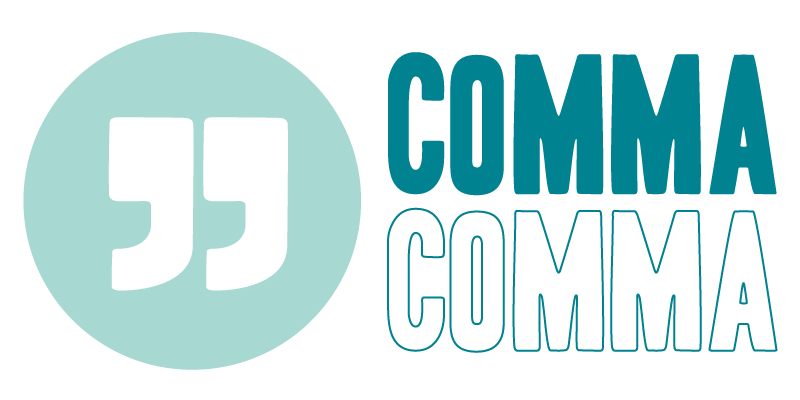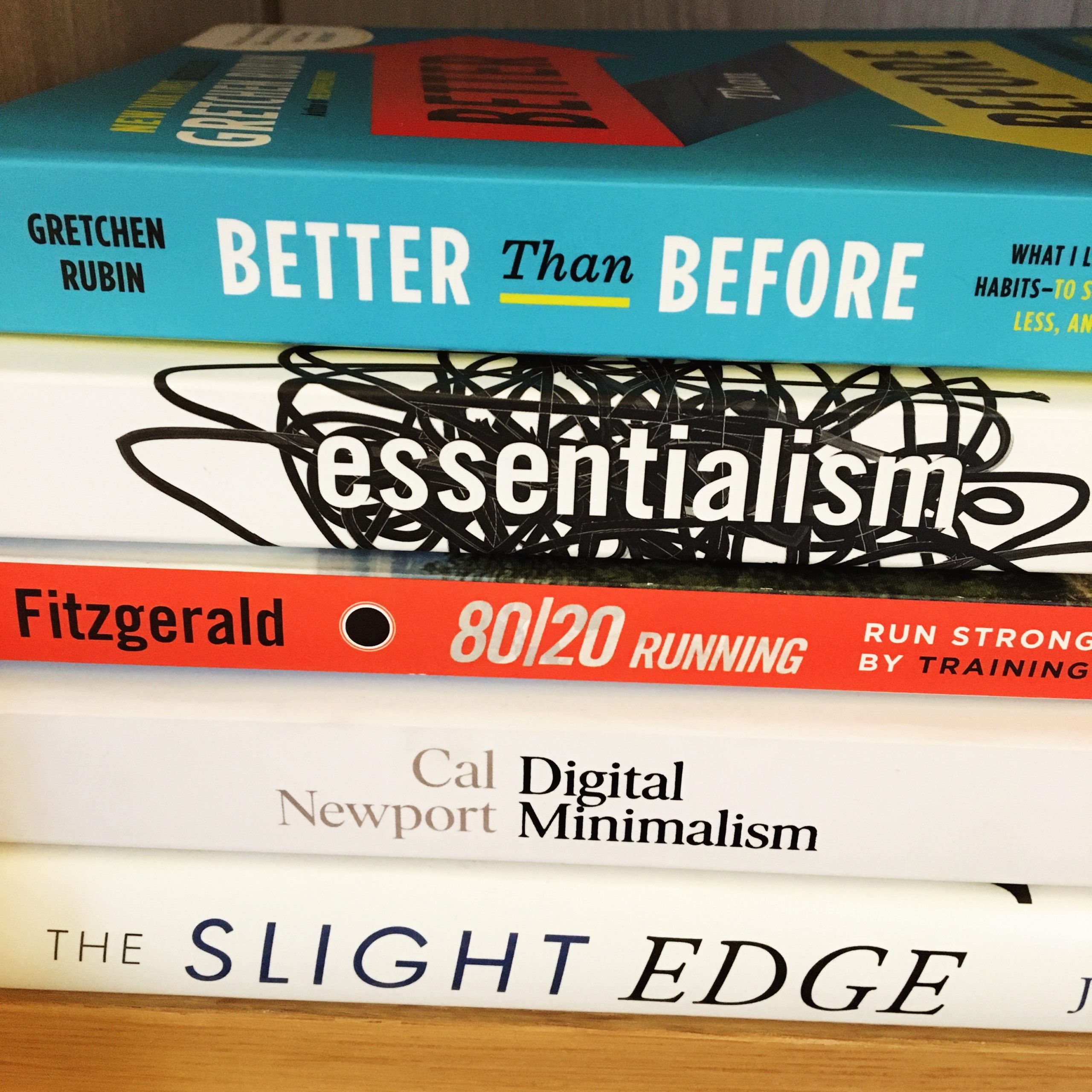If, like me, you’re at that point in the year where you’re thinking about what went well this year, and what you want to improve on, then I have some book recommendations for you.I’m an avid reader, so I thought it would be fun – and hopefully useful – to pick out five books that made a difference to me in 2019. These are my current top five “self improvement” books… and all of these are good to read ahead of making your plans for 2020.
Four of them are great choices if you’re keen on continuous improvement, and one of the five is aimed at my fellow runners, although you can apply the message to life in general too.
First up, The Slight Edge by Jeff Olson – Turning simple disciplines into massive success & happiness
I read this one at the start of every year as it’s such a great reminder that you’re either repeating simple productive actions over time, and on an upward curve, or you’re making simple errors of judgement over time, and on a downward trend. There’s no such thing as staying the same. Olson says that most people won’t do what needs to be done, day in day out, so if you can do it, you’re ahead of 95% of people, and you’re much more likely to hit your goals.
Next up, Essentialism by Greg McKeown – The Disciplined Pursuit of Less
The premise of this is that it’s easy to get sucked into doing too much and therefore doing nothing well. There’s more to this book than that – it’s an entire value system. But if you’re always busy yet still not getting to where you want to be, put this one on your Christmas list. If nothing else, it reminds you that it’s ok to say “No” to things… and then you get to experience JOMO, or “the Joy Of Missing Out”. It’s the perfect time of year to embrace JOMO. Why force yourself out to yet another seasonal social, when you could be snuggled up on the sofa watching telly and feeling smug that you won’t end the night standing in the freezing cold having an animated “discussion” with a colleague who wants to share a black cab when you’ve already booked an Uber?
I read Digital Minimalism by Cal Newport – On Living Better with Less Technology – back in January 2019
I felt like it gave me permission to be on social media A LOT less, and to treat my mobile phone the way my dad explained our home phone to me after I fell down the stairs as a kid. When I slipped trying to get to our hallway phone before the caller rang off, he told me, “The phone is there for our convenience, not the convenience of the person calling. It doesn’t matter if you don’t get there in time!” Now I’m back in that mindset, and I regularly leave the house without my iPhone. It feels good.
Better Than Before by Gretchen Rubin – What I learned about making and breaking habits – to sleep more, quit sugar, procrastinate less, and generally build a happier life
I’ve been following Gretchen Rubin for years, and I love how she will read EVERYTHING on a topic, think deeply about it, and then translate that into an easy read that teaches you something. I read this on and off throughout the year, and my biggest take away is that just because one person can form a habit in a specific way, it doesn’t mean that method will work for you. You have to work with the kind of person you are – and the way you deal with expectations from yourself and others. “Everyone’s different” feels like it should be obvious, but it’s something I hadn’t quite taken on board with reference to forming habits. Maybe you hadn’t either?
80/20 Running by Matt Fitzgerald – Run stronger and race faster by training slower
By the end of summer 2018, I was exhausted. I’d been training for trail runs and triathlons, on top of working full time, and I started to wonder if there was something wrong with the way I was training. There were people in my club who were managing to do it all, so why was I so tired all the time?
An injury meant I didn’t train much between November 2018 and April this year, but I was determined to find a way to train smarter once I got back to it. This book was the answer. It’s based on science – elite athletes train this way – but essentially it follows the Pareto Principle or 80/20 rule. You run 80% of your runs at low intensity (based on heart rate) and 20% at high intensity. I’ve never been fast, but now I train i-n-c-r-e-d-i-b-l-y slowly. It was tedious at first, but now I’m used to it and it’s fine. I see this as a three or four-year training plan – I think it will probably take that long for my heart rate to adjust and let me run at the pace I used to train at. Even though I now run slowly most of the time, when I race I’m almost matching my 2018 race pace. Which is pretty good considering I took a few months off at the start of the year. So I’d say – from my straw poll of one (me) – this approach appears to work.
80/20 Running is designed to help you avoid burnout and fatigue in your workouts, but it’s also a pretty solid rule to live by in business too. You can’t work at full tilt 100% of the time and stay healthy. But you can work solidly and consistently 80% of the time, and push yourself a bit harder 20% of the time. Save the crazy long work days for when it’s truly necessary, rather than working insane hours all the time.
So there you have it – five books that can help you make life simpler, more productive, and less exhausting. Though since I’m finishing writing this at half past midnight, having accidentally eaten half a packet of chocolate digestives, I think it’s safe to say that these books can’t guarantee you’ll reach perfection!
What books have I missed? What should I read next? I’d love to hear your recommendations. Email me at liz@commacomma.co.uk or find me here: https://www.linkedin.com/in/lizpainter/

